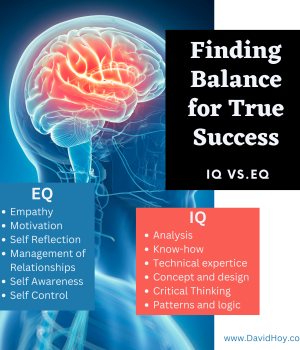Book Smart and Heart Smart: Helping Your Children Find Balance for True Success in Life
There has long been a debate in the fields of business and education about what factors contribute more to success in school, at work, and in life. It has been coined as the “IQ vs. EQ” debate. IQ is short for intelligence quotient, while EQ stands for emotional intelligence.
The basis behind traditional IQ tests is to measure the genetic potential for learning and believed, for the most part, to be unchangeable. The presumption is that we are all born with a level of intelligence that remains the same throughout our life-span and dictates our success.
Emotional intelligence (EQ) equates to possessing highly developed social skills. It is now common knowledge that kids with higher degrees of emotional intelligence not only get better grades but also stay in school longer. Would you be surprised to learn that positivity predicts college students’ first-year GPAs better than SAT scores? Hard to believe, isn’t it? It’s true. The three strongest predictors of making it through college to graduation are being socially responsible, learning to manage impulses, and having empathy for others. Unlike traditional measures of IQ, emotional intelligence (EQ) doesn’t remain the same over our life span. It is heavily impacted by our environment and our interaction with others. There is much we can do as parents, teachers, coaches, and mentors to help our children raise their EQs! And it is more important than ever as our children are experiencing historic stress related to isolation from each other as a result of living in a digital world and the isolation of the pandemic. Researchers estimate our kids are three years behind socially and emotionally and unprepared to take on the rigors of high school, college and life beyond.
In the next series of blogs I will break down critical components of emotional intelligence: self-awareness, self-management, social awareness, social management, empathy, and motivation. Stay tuned!

Schedule a Free Consultation
Call us to schedule your free consultation.
